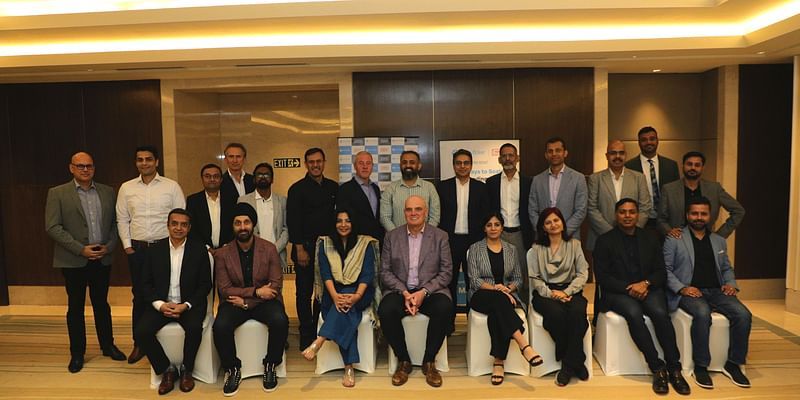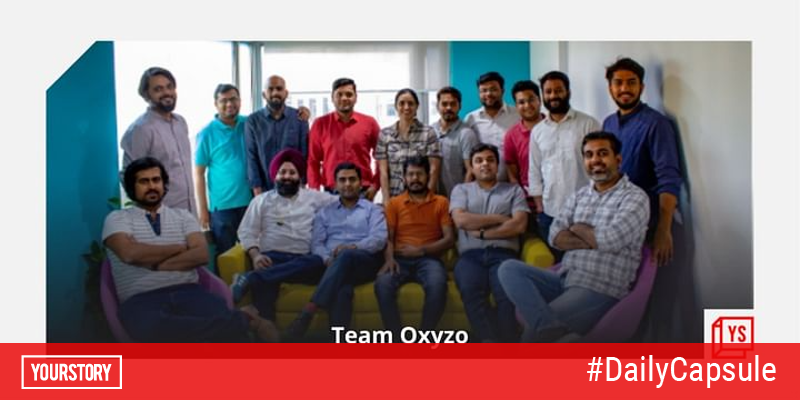
Snowflake
View Brand PublisherPathways to Scale: Industry experts decode the economics of expansion
At a recent roundtable conducted by YourStory together with Snowflake, Shradha Sharma met ecosystem leaders to decipher the fundamental principles behind driving fast growth, IPO preparedness and achieving economies of scale for business operations.
In 2020, Snowflake made history. When it debuted on the New York Stock Exchange, the data cloud company sold 28 million shares in its IPO to raise $3.36 billion in what was then, the biggest software IPO of all time. Helming its IPO journey was Mike Scarpelli, Chief Financial Officer, Snowflake Inc.
In just a decade from its inception, Snowflake went on to become a global force to help mobilise the world’s data. Today, 9,437 global customers rely on Snowflake to unite siloed data, discover and securely share data and execute diverse workloads.
As Snowflake began its rapid expansion plan across the globe, a key leader in Snowflake’s Asia expansion plan was Jon Robertson, President, APJ, Snowflake–a leader with 30 years experience working across diverse cultures in Asia Pacific.
With these two global leaders visiting India in March 2024, YourStory in association with Snowflake leveraged the opportunity to organise a roundtable to decipher the fundamental principles behind driving fast growth, IPO preparedness and achieving economies of scale in business operations.
The roundtable, which was moderated by YourStory’s Shradha Sharma together with Mike and Jon, featured various leaders from the Indian startup ecosystem including Vinayak Bhavnani, Co-founder & CTO, ; Rahim Penangwala, Senior Vice President, Product Development, ; Abhijat Shukla, Vice President - Data Science, ; Piyush Kakkad, CFO, ; Sameer Naringrekar, Head of Operations, ; Deepak Jain, Co-founder, ; Sonam Motwani, Founder & CEO, ; Dhaval Thanki, Executive Vice President, ; Amit Kumar, CTO & Executive Director, ; Anand Kumar Bajaj, Founder, MD & CEO, ; and Mohit Bedi, Co-founder and Chief Business Officer, Kiwi. Also representing Snowflake were Sunny Bedi, CIO & CDO, Snowflake; Sanjay Deshmukh, Senior RVP, Asia, Snowflake; Vijayant Rai, MD, India, Snowflake and Himanshu Shah, MD, Snowflake India.
Market adjacency as a growth strategy
While market expansion strategy is fraught with risk, one of the ways to step more safely into a new market is to employ an adjacent market strategy.
Speaking about how Chalo, a leading bus transport technology company in India is now planning to expand its presence in international markets after its successful entry into South-East Asia, Vinayak Bhavnani of Chalo said, “Our product addresses the need for mass multi-modal transport across the globe, especially in emerging markets, where people travel by bus and two-wheelers. While India is a large market, we are now targeting a global customer base.” As in the case of Chalo, growing a business internationally offers various benefits, including reducing the risk of relying on a single market for profitability, he added,
Echoing a similar thought where Karkhana.io, an on-demand manufacturing-focussed startup is now looking to expand to US and Germany said Sonam of Karkhana.io, “Our growth comes from expanding the value chain for customers. We are looking to expand our supplier base, establish a robust electronics supply chain, and drive scaling efforts in the United States and Europe. We want to empower companies that want to bring their manufacturing supply chain to India, to optimise costs.”
Loginext’s Dhaval Thanki spoke about how industry, geography and use case agnosticism are driving LogiNext product adoption globally. He emphasised on how AI is an ecosystem game; and how collaboration in the age of AI is helping evolve the market. He added that democratisation of tech, data and AI was driving new value propositions, while also bringing in agility and creativity in product development and go-to-market approaches.
Amit Kumar of Easebuzz spoke about some startups were beginning to prioritise profitability over growth, given the recent funding winter and the regulated fintech sector striving for sustainability. He also contextualised how achieving profitability necessitates innovation and delivering added value to customers beyond core offerings.
Rahim Penangwala, of CleverTap, the all-in-one engagement platform that helps its clients leverage AI to run experiments at scale, spoke about how CleverTap leans towards generative AI to optimise customer experiences. “AI is being increasingly leveraged by brands looking to treat each customer as a unique persona and boost retention. Studies show that marketers only have two seconds to capture users’ attention in the digital realm. This gives marketers a very brief window to engage their users by tapping into the right emotions and leveraging AI can help solve this at scale,” he said.
As other leaders weighed in on expanding to new markets globally, they also cited regulatory differences, cultural and language nuances, local compliance and legal requirements, adapting marketing strategies and long-term strategies for growth and sustainability, as their key concerns.
Preparing to become a public company
At $70 billion in 2020, Snowflake was the largest software company IPO of all time. Mike, who was critical to the success of the data cloud company’s public offering, shared his valuable insights on this milestone.
“Many companies would like to believe they are ready to go public. It’s easy to succumb to the excitement of an IPO. But CFOs have to ask some hard questions, such as: Is there predictability in the business? Do I have the ability to forecast my business?” he said.
He also cited that at times momentum and fast growth were drivers that got prioritised, over preparedness and viability. “If one doesn't have the predictability or the ability to forecast, then they are not ready to go public. But, it doesn’t mean that they can’t be ready in the near future. There are serious considerations to manage and crucial steps to take, if a business wants to prepare for an IPO,” he said, advising founders to act like a public company, long before they become one. “An IPO mindset starts with the culture and it has to start at the top,” he added.
AI and data driven market entry strategies
At the round table, experts also discussed how technology is fueling faster and cost-effective alternatives to traditional expansion, providing strategies businesses can implement for country launches and product localisation.
They pointed out that in the fast-paced and ever-evolving business landscape, successful market entry strategies were crucial for organisations seeking to expand their reach and capitalise on new opportunities.
With AI emerging as a game-changer for the way businesses approach market entry, the leaders weighed in on leveraging AI for their market entry strategy and the key expansion challenges they believed it would solve.
Abhijat Shukla of WebEngage shared how growth for their business is being driven by a strong partner ecosystem and embracing AI-led strategies. “We are targeting a 10X growth through strong collaborations. As AI evolves, we will leverage it deeply for our market strategies and overseas expansions,” he added.
With AI being increasingly leveraged for data-driven decision-making, predictive analytics, customer segmentation, competitive intelligence, and risk mitigation Jon spoke about how it is setting the stage for more agile and successful market entries.
“Companies that are adopting and integrating AI into their expansion plans, and have extracted the most value from their data, will be able to position themselves as frontrunners in the dynamic and competitive global market, unlocking unprecedented opportunities for growth and sustainability,” he said.
Conclusion:
While the experts all agreed that the rising competition globally has also complicated the process of business scaling, they also acknowledge the role of cloud and AI as a game-changer for scaling.
Technology platforms like AI and the cloud are levelling the playing field for startups and growing companies by opening the door to solve problems they couldn’t effectively tackle before.
They also agree that the best part of these technologies is that it is still in its nascent stages of growth, with more and more use cases being created day after day - and anyone coming on board has the advantage of being an early adopter.
So, even if you are wet behind the ears, fret not! It’s not too late to embrace emerging technologies to scale your business with and maximise ROI!








